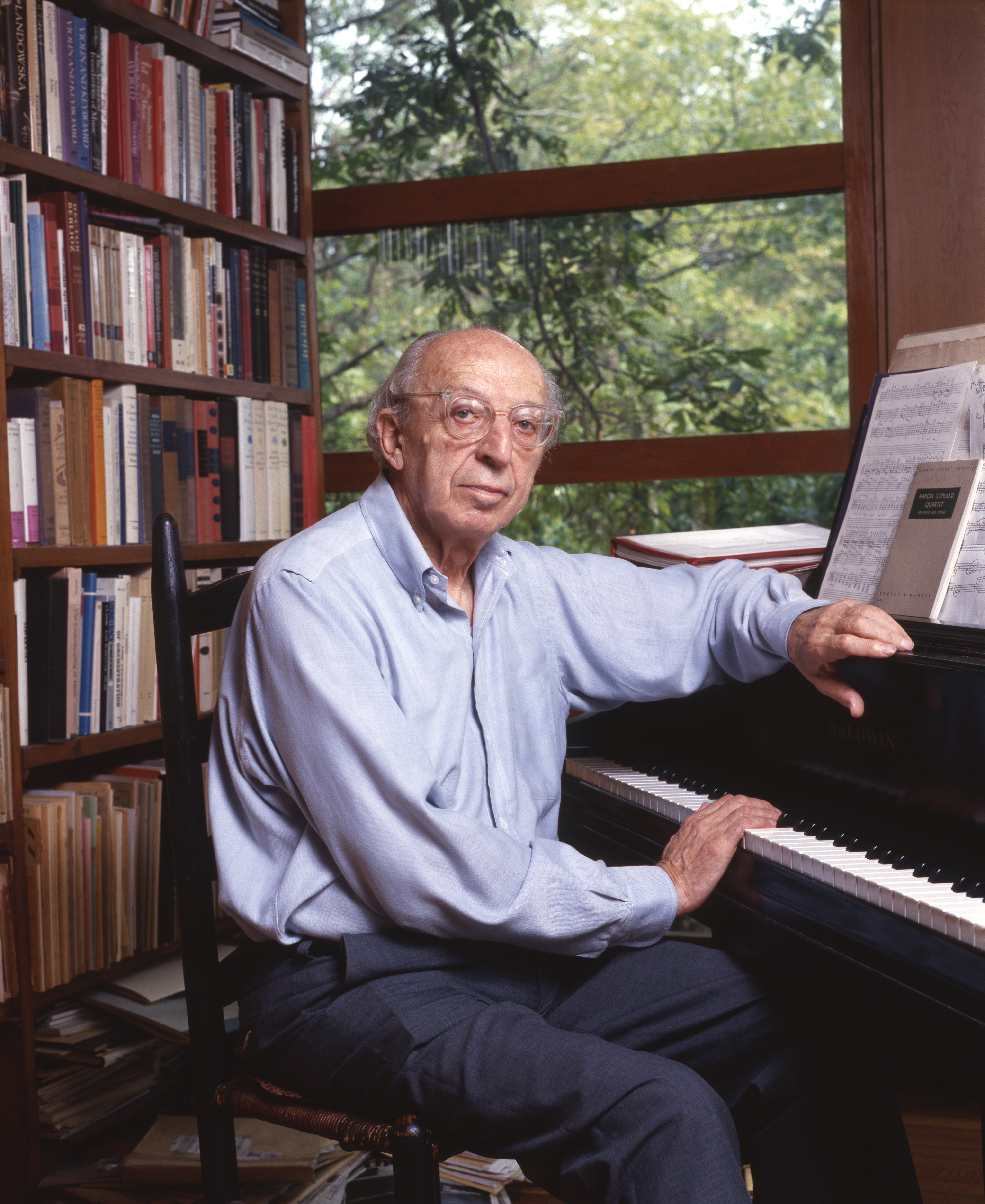Copland, Aaron, << KOHP luhnd, AIR uhn >> (1900-1990), was one of the most influential and admired American composers of the 1900’s. He won the 1945 Pulitzer Prize for music for the ballet Appalachian Spring (1944). He received an Academy Award for his music for the motion picture The Heiress (1949).

Several of Copland’s early works show the influence of French and middle European music of the early 1900’s. He also emphasized jazz in such early works as Music for the Theater (1925), for small orchestra, and his Piano Concerto (1926). From the mid-1930’s to the mid-1940’s, Copland incorporated folk music into his compositions. El Salon Mexico (1937), an orchestral work, uses traditional Mexican themes. His music for the ballets Billy the Kid (1938) and Rodeo (1942) includes folk songs of the American West. He blended elements of his earlier styles in Symphony No. 3 (1946). Beginning in the early 1950’s, he revived the lean, severe style of his earlier works and incorporated the modern 12-tone technique. His works during this period include the Piano Fantasy (1957) and the orchestral works Connotations (1962) and Inscape (1966), which was his last major work.
Copland was born on Nov. 14, 1900, in the Brooklyn section of New York City. His parents were Russian Jews, and he used Jewish themes in such compositions as Vitebsk (1929) for cello, piano, and violin. Copland wrote several books in an effort to promote wider acceptance of modern music. These books include What to Listen for in Music (rev. ed. 1957) and The New Music, 1900-1960 (rev. ed. 1968). Copland also wrote two volumes of autobiography, Copland 1900 Through 1942 (1984) and Copland Since 1943 (1990). He died on Dec. 2, 1990.
